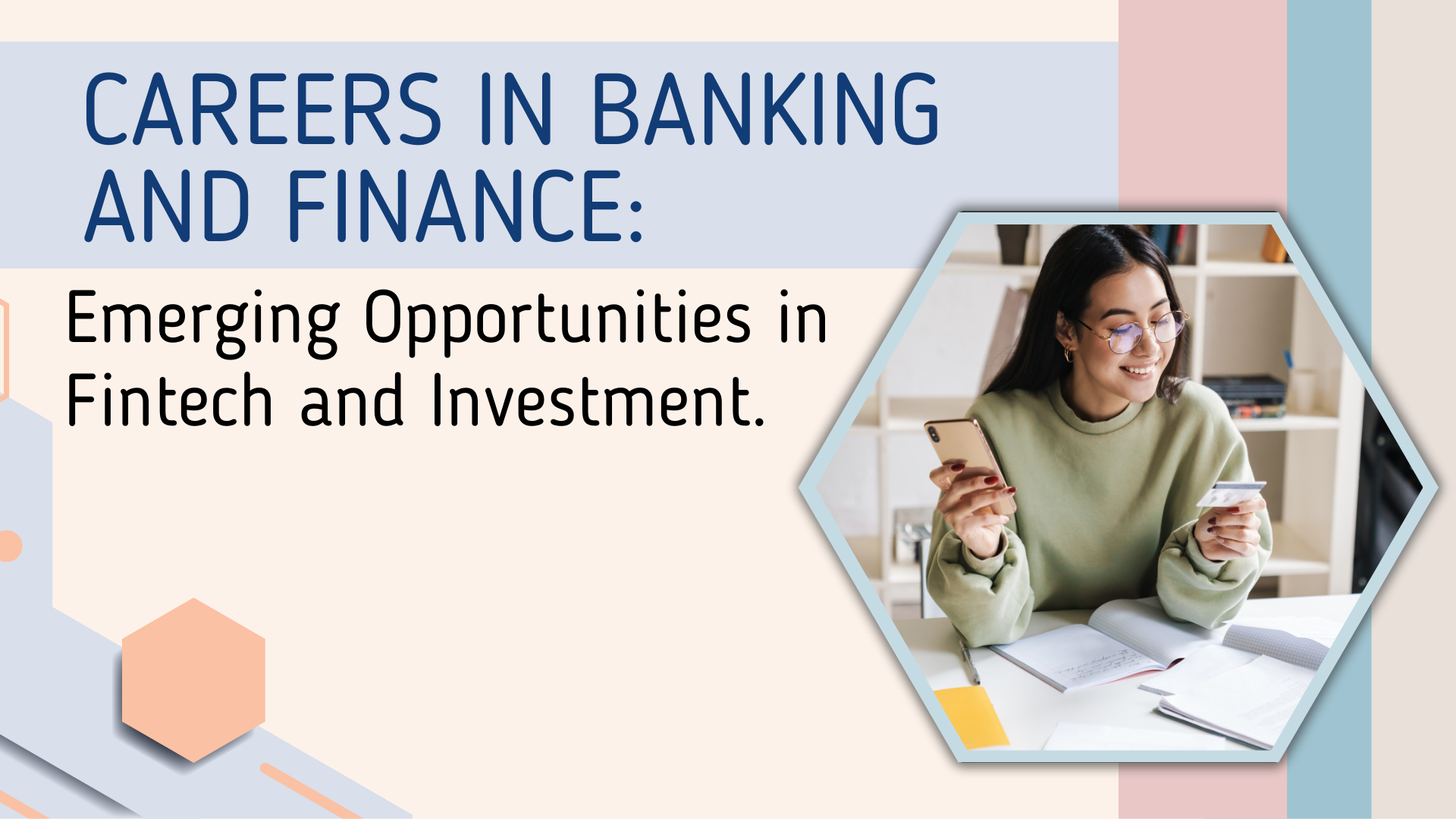The banking and financial sector is seeing swift transformation, driven by technology advancements and the rising significance of fintech. The increasing integration of digital platforms, mobile banking, and investment applications is generating multiple opportunities for students and aspiring professionals in this field. Understanding fintech and investment trends is essential for anybody seeking a career in finance. This assessment delineates the importance of training in these areas, its capacity to improve employment prospects, and the particular roles available across various industries.
Why Training in Fintech and Investment is Important
Given the current state of affairs in the financial sector, traditional banking employment is no longer sufficient to satisfy the requirements of a market that is very technologically aware. When it comes to making their operations more effective, improving the client experience, and coming up with new products, financial institutions, investment firms, and new enterprises are gradually beginning to employ fintech. Because of these shifts, it is increasingly essential for individuals to possess knowledge as well as expertise in both business and technology. By gaining knowledge in fintech and investment, individuals are able to acquire skills in areas such as digital finance, blockchain technology, data analytics, and artificial intelligence (AI), all of which are becoming increasingly crucial in contemporary financial occupations.
Furthermore, understanding the complexities of fintech enables professionals to quickly adapt to digital revolutions, increasing their resilience in a competitive job market. Proficiencies in this subject provide adaptability, allowing students to work in both traditional finance roles and innovative fintech businesses.
How Fintech and Investment Skills Help in Jobs
A comprehensive understanding of fintech and investing methods can markedly improve employability. Proficiency in digital banking operations, online payment systems, and investment applications is highly esteemed in positions centred on customer experience and financial product creation. Furthermore, comprehending financial instruments and methodologies, including robo-advisors and AI-driven investment frameworks, can enable students to thrive in roles such as financial Analyst, Financial Advisor, and Portfolio Manager.
Demonstrating proficiency in fintech platforms, digital payment systems, or investing automation helps distinguish interns and recent grads. These talents indicate that a candidate is innovative, flexible, and prepared to confront the challenges of a swiftly evolving industry.
Key Job Opportunities in Fintech and Investment
Fintech and investment are generating numerous employment opportunities in both conventional financial institutions and technology-oriented startups. Here are a few positions that students and interns may contemplate:
- Investment Analyst: Investment analysts study the market and look at financial data to help people decide how to spend their money. They can use data analytics tools to learn more about the market through fintech. This helps them make smarter business decisions based on facts.
- Financial Advisor: It is important for financial advisors to know how to use investment apps and automation platforms because more and more of them are using them to manage their clients' money. These experts help their clients make smart choices, and they often work with robo-advisors to give their clients automated financial advice.
- Fintech Product Manager: There are people in fintech who are in charge of making digital things like lending platforms, mobile banking apps, and payment systems. For this job, the person must be good with money and technology and know how to do things like market study and customer experience design.
- Data Analyst in Finance: Data is a big part of fintech because it helps people make better decisions and improves financial solutions. Financial data analysts use tools to gather and study data, finding patterns that help businesses improve what they offer.
Examples of Fintech Tools and Their Applications
To succeed in fintech, students should familiarize themselves with a few essential tools:
- Blockchain: Used for secure operations and the growth of digital currencies.
- Robo-Advisors: Automated systems like Betterment and Wealthfront offer financial advice based on AI.
- Payment Systems (e.g., Stripe, PayPal): These are crucial for digital transactions and are fundamental to fintech applications.
- Data Analytics Platforms: Tools like Tableau and Power BI enable data visualization and analysis, valuable in market research and investment decisions.
Promoting Stuintern for Finance and Fintech Internships
Stuintern provides customized internships for students interested in fintech and investing jobs, integrating practical experience with skill development. Stuintern enables students to engage with leading firms in finance and fintech, acquiring insights into the practical applications of their expertise. The banking and finance courses available on the platform emphasize experiential learning, encompassing areas such as digital payments and data analytics, thereby equipping students with a thorough comprehension of the sector.
Joining Stuintern provides students with essential tools, mentorship, and a supportive network, all aimed at facilitating their success in selected career trajectories.
Conclusion
The amalgamation of technology and finance has created a novel domain in the banking and investing sector. Fintech and investing training enhance a student's employment opportunities while providing the agility required in a rapidly changing industry. Numerous professional opportunities exist, ranging from financial analysis to fintech product management. Platforms like as Stuintern serve as an ideal conduit for students and interns to initiate their careers, presenting internships that connect academic learning with practical experience.
If you are inclined to analyze assets, manage financial products, or utilize data in fintech, the optimal moment to commence is now. Embrace transformation, acquire vital competencies, and enter a future replete with prospects in the dynamic realm of fintech and investing.

